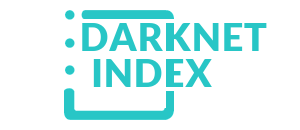The darknet, also known as the dark web, is a concealed section of the internet that's inaccessible via standard search engines. You can only access it using special software, settings, or authorization. This area comprises websites and content that are purposely kept hidden from public view.
Accessing darknet requires using Tor Browser, a special web browser that routes your internet traffic through a global network of relays managed by volunteers. This way, it becomes very difficult to trace which websites you're visiting, and these sites won't know where you are located.
When visiting the dark web, use a secure browser like Tor, do not reveal any of your personal information, and don't open suspicious files or links to stay safe.
The Darknet is often utilized for secure communication, discreet information or file sharing, anonymous research without identity exposure, and occasionally for engaging in illicit activities. It is also recognized for hosting underground black markets(darknet markets), whistleblowing platforms, and discussion boards that champion freedom of speech.
While accessing Darknet Markets themselves is typically not against the law in most places, engaging with illicit goods within them is generally considered a crime. On the other hand, some people might visit Darknet Markets for lawful purposes such as research, journalistic work, or simply to explore online communities. It's essential to know the local laws regarding online activities, and be cautious when using these platforms to avoid any potential issues.
Police Officer awaits sentencing after ordering drugs on darknet
A 34-year-old police officer and his former partner were both given partial prison sentences at the Regional Court in Wels, Austria. The officer was accused of purchasing substantial amounts of drugs on various darknet markets for himself, his ex-partner, family members, and friends, and eventually even investigating himself.
30 months in prison, 10 of them mandatory! The ex-policeman was charged with drug trafficking and abuse of authority, among other things. He faces almost a year in prison. He was sentenced on Thursday at Wels Regional Court. However, there were acquittals in other offenses. "The accusations were put into perspective overall. That's why there were partial acquittals," said Andreas Meissner, lawyer for the convicted police officer. The convicted man had largely confessed to the rest of the charges anyway.
Numerous charges
The 34-year-old allegedly ordered two kilos of amphetamine and about 200 grams of ecstasy for himself his wife and family members. He did this on the darknet between 2017 and 2023. When a shipment was delivered to his own address under a false name, the officer even investigated himself. He had also made evidence disappear. He replaced the confiscated drugs with creatine powder, a legal muscle-building agent, on the way to the detention center. One package of drugs had even been delivered to a postbox at his own office.
Treacherous chats
The chats were also full of innuendos. They were thinly veiled conversations about drugs, deliveries, and handovers. The officer had also sent personal details or even entire files to his ex partner. He also sent them to other acquaintances. The police officer had fabricated a confirmation of loss for his brother's driving license, which had been revoked for drug-related reasons, and also fabricated some coronavirus-related documents. Finally, the leaked police internals also included a nude photo of a minor.
The police officer's ex-partner was also sentenced on Thursday. She got a ten-month conditional prison sentence and must pay a fine of 7680 euros. Although the verdict from Wels is legally binding, the matter is not yet over for the suspended police officer. The disciplinary commission still has to decide what the consequences will be under employment law. However, it is already certain that the police officer will be dismissed from service.
